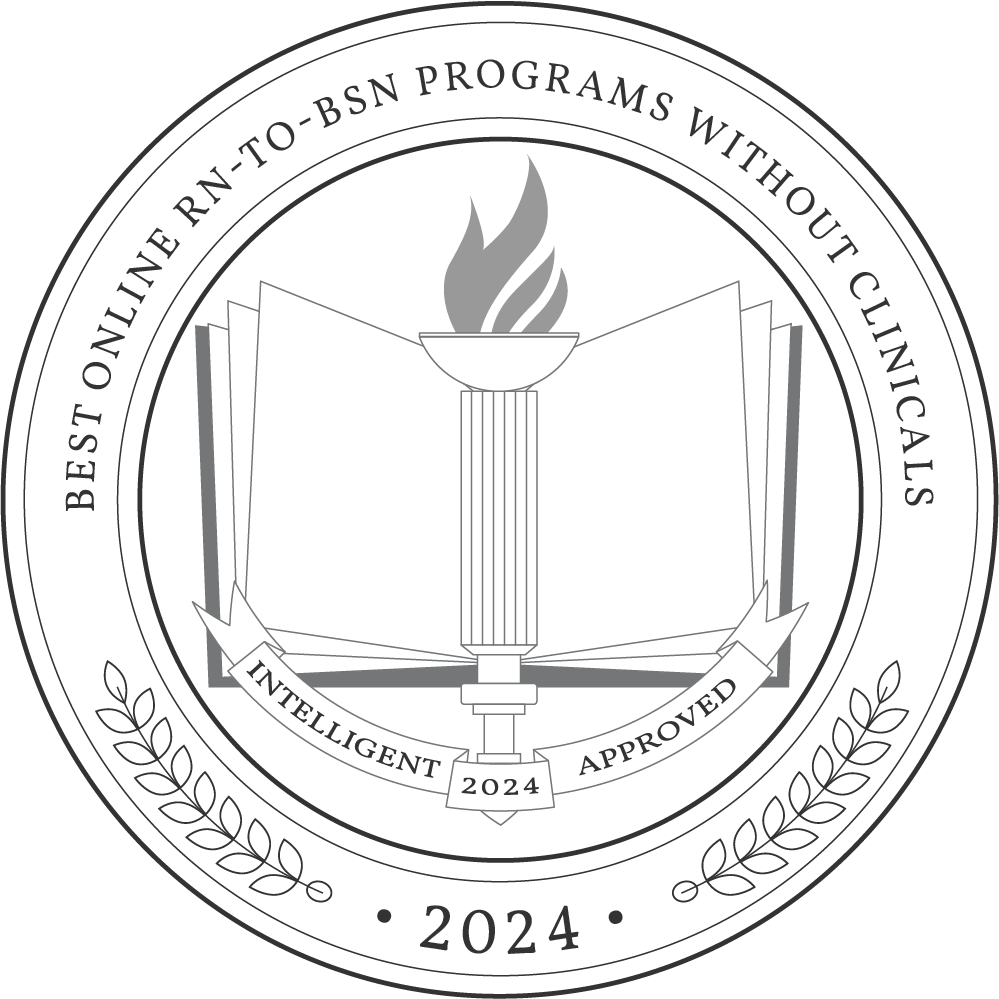If you are already a registered nurse, you may have wondered what is involved in continuing your education. The nursing field offers a wide range of educational opportunities, from associate degrees all the way up to doctoral programs. One common program is the RN-to-BSN option, which allows you to earn your bachelor’s degree in nursing while you are a working nurse.
Although every program is different, it is possible to find some that do not require clinical experience. These are most common if you already have experience in the healthcare world. Clinical requirements may be determined by the state or your school, and they vary greatly depending on where you live.
Another choice you will make when considering your education is whether to apply for an in-person program with classes held on a local campus or an online program, which allows you to choose a program anywhere in the U.S. There are definite financial and time-saving benefits to doing your program online, and it can help you get your degree more quickly and efficiently.
In this article, we’ll look at some of the best online RN-to-BSN programs without clinicals and analyze some of the factors you should consider when deciding where you will go.
How To Get Into an Online RN-To-BSN Program That Doesn’t Require Clinicals
Online RN-to-BSN programs may still have strict work requirements. Students will likely need to have undergone clinical work in their previous educational efforts or have worked as registered nurses for at least a year in a clinical nursing setting. They will need to be able to provide proof of this previous experience when they apply to their proposed program.
You will need to meet other requirements to be accepted into your program, which will vary depending on the school you choose. You are likely to need to submit transcripts from your previous education as well as proof that you passed the NCLEX and are a registered nurse.
There may be a minimum GPA from your associate degree, usually around 3.0, that you will need to meet. Some programs ask for a personal statement or letters of recommendation. Your school will send you information on what is required, and it is important to pay attention to deadlines, as missing them can cost you your place in the class.
There may be other requirements for admission that are unique to your school, but you should find these listed on the school’s website, or you can ask an admissions counselor what else you need to supply.
Benefits of Earning a BSN
No matter what sort of program you choose, there are multiple benefits to continuing your nursing education to earn a BSN. Consider the following:
Job opportunities
Nurses with a bachelor’s degree are far more hirable than those with just an associate degree or nursing diploma. Some employers will only hire nurses with a BSN, and the pay rate, in general, is higher. According to the U.S. Bureau of Labor Statistics (BLS), registered nurses with a bachelor’s degree earn a median salary of $77,600 a year, and the need for them will grow by six percent over the next decade.
One way to ensure you are well-placed for job advancement is to consider a particular focus as you plan your courses. You could, for example, specialize in pediatric nursing, public health nursing, or critical care nursing. You might also become a clinical nurse specialist (CNS), which allows you to provide direct patient care in a nursing specialty such as psychiatric and mental health nursing.
You will be given an academic advisor when you are accepted to your program, and these individuals can be a great help as you plan your education. Work closely with them when choosing courses, as they can help ensure that you take the appropriate classes for your chosen focus area.
Educational opportunities
A BSN degree can be a stepping stone to further advancements for some nurses. If you are interested in becoming a leader in your field, further education at the master’s or doctoral level can open up even more doors to advancement and higher salaries.
Keep in mind that nurses with a master’s degree, for example, can become nurse anesthetists, nurse midwives, nurse practitioners, or other high-level positions. Nurses at this level may earn six-figure salaries. The BLS says the median salary for nurses with a master’s degree is $123,780 per year, with some nurses making even more.
Nurses with a Ph.D., meanwhile, can play vital roles in the nursing field. They may serve as managers or directors of nursing units, nurse practitioners, or professors at the university level.
Nurse practitioners, in particular, will be highly in demand over the next decade, with a growth rate of 46 percent, much higher than average. These nurses may have a master’s or doctoral degree and work as primary or specialty care providers. In some states, they work independently and can prescribe medications and order lab tests.
Even if you choose to stay at your current workplace, you may find that you’re eligible to earn a higher salary once you obtain your bachelor’s degree. Some employers may even offer tuition assistance for you to encourage you to further your education.
Our Research
This list features some of the country’s best online RN to BSN programs (no clinicals). Each school featured is a nonprofit, accredited institution, either public or private, with a high standard of academic quality for post-secondary institutions.
We evaluated each school’s program on tuition costs, admission, retention and graduation rates, faculty, and reputation. Then, we calculated the Intelligent Score on a scale of 0 to 100. Read more about our ranking methodology.
Next, we compared this comprehensive list of the best online RN to BSN programs (no clinicals) to a list of aggregated college rankings from reputable publications, such as U.S. News & World Report, to simplify a student’s college search. We pored through these rankings so students don’t have to.
The 50 Best Online RN to BSN Programs without Clinicals
